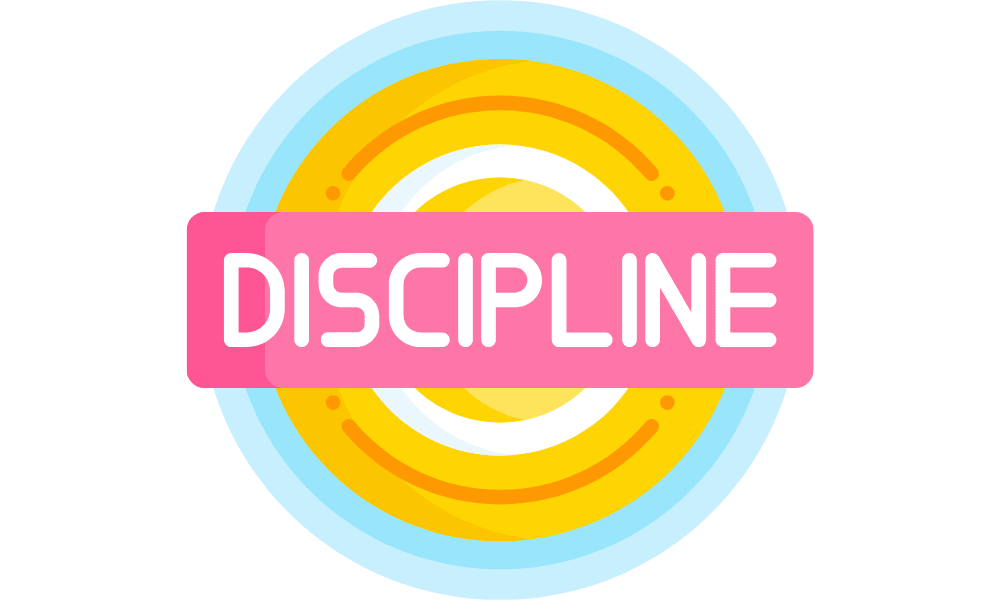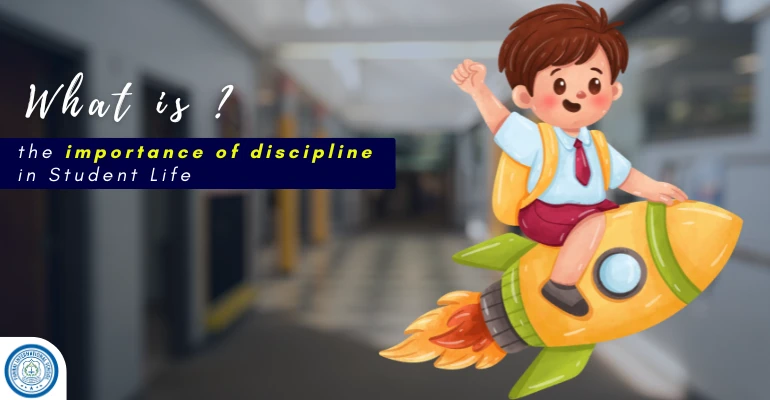What is the importance of discipline in Student Life ?
May 19, 2025 2025-05-30 16:18What is the importance of discipline in Student Life ?
Discipline is one of the foundational values that shapes a student’s personality, behavior, and future success. In a student’s formative years, discipline is not just about following rules it’s about building habits that support focus, self-control, and consistency.
The importance of discipline in student life goes far beyond classroom decorum; it becomes a guiding principle for academic achievement and personal development.
In today’s academic landscape, schools are increasingly emphasizing the role of discipline as a core life skill. For instance, institutions like International Schools in Mumbai have adopted structured schedules, integrated discipline with value education, and created an environment where students naturally understand the need to manage time, maintain focus, and respect boundaries.
Understanding Discipline in the School Context:


Discipline in student life refers to the ability to stay consistent with one’s actions, follow routines, and maintain self-control even in the absence of supervision. It helps students make the right choices, take responsibility, and cultivate patience.
The importance of discipline in student life stems from the fact that it ensures regularity, reduces distractions, and enhances productivity both inside and outside the classroom.
Semantically, discipline is closely related to focus, responsibility, accountability, self-regulation, and time management—all of which contribute to the holistic development of a child.
Why is Discipline So Important in Student Life?


Here are some of the key reasons why discipline holds unmatched value in the lives of students:
1. Builds a Consistent Learning Routine
When students follow a structured routine, they are more likely to complete homework on time, prepare better for exams, and stay engaged in class activities.
2. Promotes Better Focus and Concentration
Discipline trains the mind to stay away from distractions such as gadgets or unproductive activities. It helps students focus on their goals with clarity.
3. Shapes Personality and Character
Respecting teachers, maintaining decorum in classrooms, and being punctual are all forms of disciplined behavior. These values form the core of a student’s personality.
4. Encourages Self-Motivation
A disciplined student doesn’t need constant monitoring. Once self-discipline is internalized, it acts as a motivator to stay on track even during challenges.
5. Reduces Academic Stress
With time-managed routines and well-organized study schedules, students experience less last-minute pressure, leading to better mental health and improved performance.
Role of Discipline in Time Management and Goal Achievement:


Time is a limited resource, and discipline is the tool that helps students use it wisely. Time management is impossible without discipline. Students who adhere to a timetable complete tasks faster, avoid procrastination, and make space for extracurricular activities.
For example:
- A disciplined student may wake up early, study for an hour, attend school, and revise in the evening.
- Such a routine helps them achieve academic and personal goals while maintaining a healthy balance in life.
The importance of discipline in student life also comes into play when setting long-term goals. Students must stay committed and avoid short-term temptations to reach those larger milestones.
Discipline Encourages Respect and Responsibility:


Students who understand the value of discipline naturally show respect—for their peers, teachers, school property, and learning itself. This sense of respect translates into responsibility.
They begin to:
- Own up to their actions
- Maintain classroom etiquette
- Submit assignments on time
- Keep promises and commitments
This behavioral growth is a direct reflection of the role discipline plays in student development.
Impact of Discipline on Academic Performance:


There’s a direct connection between academic performance and disciplined behavior. Students who maintain regular attendance, complete assignments diligently, and participate actively in school events often show improved academic outcomes.
Teachers also find it easier to mentor disciplined students, as they demonstrate active listening, better comprehension, and higher engagement. Schools that instill discipline early witness more confident, organized, and self-aware students.
How Schools Can Foster Discipline Effectively?
Modern education systems are moving away from fear-based discipline to habit-based and value-driven discipline.
Here’s how schools can encourage it:
- Reward Consistency: Appreciate students who follow rules, respect time, and maintain cleanliness.
- Build Routines Early: Introduce daily schedules, structured class time, and break periods.
- Lead by Example: Teachers and mentors should model disciplined behavior.
- Use Real-Life Examples: Relate discipline to sports, art, or life stories where consistency leads to excellence.
- Involve Parents: Partner with parents to ensure consistency at home and school.
The importance of discipline in student life is best realized when students don’t see it as a restriction but as a skill that gives them control over their lives.
Real-World Applications of Discipline Learned in School:
The habits of punctuality, consistency, and resilience formed during school help students navigate the adult world confidently. Whether it’s meeting college deadlines, balancing work and personal life, or managing stress, discipline continues to be their strongest asset.
Discipline also supports ethical decision-making. It keeps students grounded during peer pressure and helps them make choices aligned with their values.
Final Thoughts
From shaping a student’s mindset to preparing them for real-world challenges, discipline plays a silent yet powerful role.
The importance of discipline in student life lies in its long-term impact, it’s not just about grades or following rules, but about becoming a responsible, capable, and focused individual.
Frequently Asked Questions (FAQs)
Ques 1. How does discipline affect a student’s performance?
Ans. Discipline boosts performance by improving time management, reducing distractions, and ensuring consistent effort in studies.
Ques 2. Is discipline more important than intelligence for success?
Ans. Both are important, but discipline ensures consistent effort, which often outweighs raw intelligence in the long run.
Ques 3. How does discipline help with time management?
Ans. Disciplined students follow schedules, avoid procrastination, and allocate time wisely, leading to improved productivity.
Ques 4. Does discipline help students in the long term?
Ans. Yes, the habits formed through discipline help in higher education, careers, and personal decision-making.
Ques 5. How does school discipline shape future success?
Ans. It lays the foundation for responsible behavior, consistent effort, and problem-solving in adulthood.




